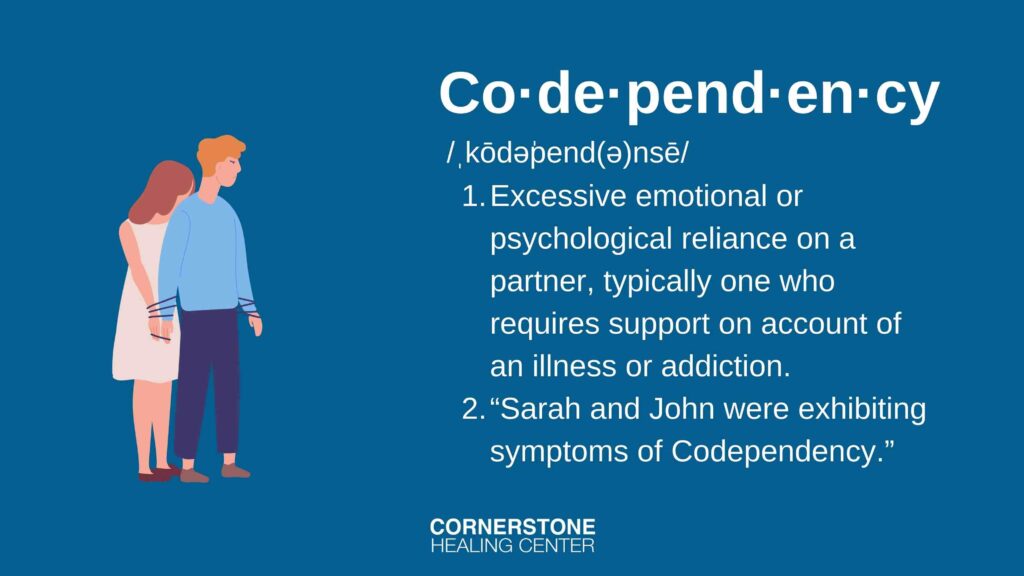Common Approaches to Couples Rehabilitation
Traditional Routes to Recover
When tackling addiction, the most commonly advised options are generally individualized treatments like detoxification, one-on-one counseling, and support groups such as Alcoholics Anonymous or Narcotics Anonymous.
These methods primarily focus on the individual, catering the treatment to specific needs, triggers, and patterns of substance abuse.
They aim to provide a person with the tools to achieve sobriety and sustain it independently.
The Uncharted Territory: Couples Rehab
But what happens when you and your partner are entangled in the web of addiction?
That’s where couples rehab comes into play.
Couples rehabilitation facilities offer specialized treatment plans that consider each partner’s unique struggles and the dynamics of their relationship.
Here, you’re not just a patient but part of a duo aiming for mutual recovery.
Couples rehab programs often combine individual treatment plans with couples therapy, allowing for a holistic approach.
In these settings, you both can simultaneously confront your addictions and the relational issues that may be contributing to your substance abuse.
You’ll undergo individual therapy sessions and couples counseling to identify triggers, improve communication, and build healthier relationship habits.
In essence, couples rehab aims to hit two birds with one stone—helping you get clean while strengthening the relationship you share.
While this sounds like an ideal solution, it’s not without its complexities, and the choice to enter couples rehab should be thoroughly considered.
Why You Shouldn’t Go to a Rehab Facility Together
Your Focus Could Wander
In rehab, the ultimate goal is personal recovery and growth.
However, your partner’s presence might shift your focus from self-improvement to relationship management.
You’re human, after all.
The natural tendency to worry about your significant other could steal valuable time and energy away from your healing.
It might sound selfish, but focusing on getting healthy and clean is a high priority that can’t be halfway done.
Relapse Risks
Secondly, there’s the potential domino effect when it comes to relapses.
If you’re in rehab together and one of you stumbles—unfortunately, a widespread occurrence in the recovery journey—it could also trigger the other to relapse.
The dynamics of addiction are complex, and one partner’s moment of weakness could quickly become a shared setback.
Imagine how much more challenging it could be for you both to maintain your sobriety when the person who shares your life struggles to maintain theirs.
The Chain of Codependency
Codependency is an issue that couples rehab could inadvertently eternalize.
Entering rehab together might signal that you’re placing the relationship over individual recovery, an alarm bell for codependency.
If you’re both more focused on staying together than addressing the core issues that led to addiction, the cycle might continue in a different setting.
Remember, your primary aim should be a healthier you—because a healthier you makes for a healthier relationship.
So, as you can see, the decision to go to rehab together is not a simple yes or no answer.
It’s complex, nuanced, and deeply personal.
It involves carefully weighing the pros and cons, ensuring that your decision supports your journey towards sobriety and the longevity of your relationship.
Personal Experiences to Learn From
Pam and Brad’s Story
Pam and Brad, both battling addictions, opted to enter rehab together, hoping their love would ease their recovery journey.
However, being in the same facility blurred their individual needs. Seeing each other struggle became a significant distraction, and when Brad relapsed, it triggered Pam’s own relapse.
Their intertwined recoveries led to mutual setbacks, and they left rehab prematurely. Their relationship suffered, leaving them still addicted and now burdened by the emotional toll of a shared rehab failure.
Sarah and Jake’s Separate Roads to Shared Success
Sarah and Jake, each battling addiction, chose separate rehab facilities to focus on their unique recovery needs.
Sarah addressed her alcoholism through cognitive behavioral therapy, while Jake received specialized treatment for painkiller dependence.
After months of self-reflection and learning, they rejoined as individuals stronger in their recovery.
Their time apart reinforced the importance of individual well-being in a shared relationship. In contrast to Pam and Brad, who faced challenges in the same rehab, Sarah and Jake’s journey emphasizes the power of individual healing in strengthening a relationship.
Critical Considerations for Decision-Making
Is Your Love Ready for This Test?
Before making such a monumental decision, it’s crucial to assess the stage and stability of your relationship.
If your relationship is relatively new, still in the honeymoon phase, or not remarkably stable, tackling rehab together may not be advisable.
The stresses and emotional toll of rehab can strain even the most rock-solid relationship.
If you’re both in a committed, long-term partnership and have weathered life’s ups and downs together, your relationship might be robust enough to handle the trials of joint rehabilitation.
Severity of Addiction: One Size Doesn’t Fit All
When considering couples rehab, the severity and type of addiction you both face can be pivotal factors in your decision-making process.
For example, if one partner’s addiction is significantly more severe than the other’s, their treatment needs may be drastically different.
A program that works for one of you might not be effective for the other.
Furthermore, certain types of addiction may require specialized treatment modalities that aren’t conducive to a couples-based approach.
Therapeutic Recommendations
Seek advice from medical professionals, therapists, or addiction counselors who can evaluate your circumstances.
They can offer tailored recommendations considering your needs and dynamics as a couple.
This expert advice can be invaluable in helping you make the right decision.
Each relationship and situation is different and should be
Most Rehabs Don’t Take in Couples
One crucial point is that
most traditional rehab facilities are not set up to accommodate couples.
These programs are tailored for individual treatment, focusing on the singular path to recovery.
You might find your options limited if you’re set on going to rehab together.
And let’s be clear: When your lives are on the line, limiting your choices based on the couples therapy aspect may not be the best course of action.
Considering all these factors can help you make a more informed, wise decision.
Remember, the primary goal here is the well-being of both individuals.
A healthy relationship can only be built on that foundation.
Alternative Solutions: Other Roads to Recovery for Couples
Concurrent Rehab: Synchronized Yet Separate
One avenue to consider is what’s known as concurrent rehab—where both of you go to
rehab at the same time but attend different facilities.
This option lets each partner focus squarely on their recovery, unencumbered by the other’s presence, yet you both remain committed to getting better simultaneously.
This strategy can be especially effective if your addictions are of different types or severities or the relationship is new and yet to be stabilized.
Treatment Should Be the First Priority
In the complex landscape of this decision, it’s crucial to remember that the primary goal is effective treatment for both parties.
As much as you want to support each other, each individual’s recovery must be the priority.
This isn’t selfish; it’s the foundation for a future healthy relationship.
Going your separate ways and focusing on yourselves in order to get the proper healing is important.
Keep the Lines of Communication Open:
Finally, consult widely—talk openly with each other and include healthcare providers in these conversations.
Medical professionals can give expert advice tailored to your particular situation—a decision this significant shouldn’t be made in isolation.
The Couples Journey After Rehab
Navigating Life After Rehab: A Mutual Commitment
Let’s be clear: exiting rehab doesn’t mean you’ve exited the journey to recovery.
Recovery is a lifelong commitment that both of you will need to prioritize.
You and your partner will have developed tools and coping strategies during rehab, but how do you implement these in the “real world?”
Consistency is key.
Whether continuing with
individual therapy, attending support group meetings, or implementing a daily mindfulness routine, maintaining healthy habits can go a long way in sustaining long-term sobriety.
The Role of Aftercare Programs
If you’re wondering whether there’s more structured support available post-rehab, you’re in luck.
Many rehabilitation facilities offer aftercare programs, and some are designed for couples.
These aftercare programs often include ongoing therapy sessions, educational workshops, and regular check-ins to monitor your progress.
They aim to provide you with a safety net as you both navigate the challenges of a sober lifestyle.
Aftercare is not a sign of weakness; it’s a proactive approach to sustaining your hard-won sobriety.
Support Networks
Remember, maintaining sobriety isn’t a task just for the two of you.
Friends and family who support your journey can play a critical role in your long-term success.
The idea is to build a community around you that reinforces your new, healthier lifestyle choices.
A strong support network can be invaluable, from celebrating sobriety milestones to having a shoulder to lean on during challenging times.
Self-Care Isn’t Selfish
While the focus is often on the relationship, personal self-care is paramount, especially in the context of addiction.
Remember what Sarah and Jake learned: you must be individually and collectively stronger.
Continue engaging in activities that foster your personal growth and well-being.
Whether through physical exercise, creative expression, or spiritual practices, enriching your individual lives will add more value to your life as a couple.
In conclusion, long-term recovery is a continuous, collective effort punctuated by individual commitments to stay sober and healthy.
The path may be extended and sometimes challenging, but with the right strategies, support, and mindset, a fulfilling, substance-free life is more than possible—it’s probable.
Remember, you’re not just recovering addicts; you’re recovering individuals who have every opportunity to thrive, both as a couple and as individuals.
Codependency Resources
For those interested in diving deeper, several resources can offer more information and support on this topic:
“
Codependent No More” by Melody Beattie – A seminal book on understanding codependency.
American Association for Marriage and Family Therapy focuses on addiction in relationships.
How to Get Help for Addiction
Remember, the road to recovery is seldom straightforward, but with the right resources and support, you and your partner can find your way back to a healthier, happier life.
If you or someone you care about is facing addiction or mental health challenges, we encourage you to contact us at Cornerstone Healing Center.
Our
Arizona treatment facility is grounded in evidence-based practices and specializes in dual diagnosis to promote long-term recovery by addressing underlying issues.








